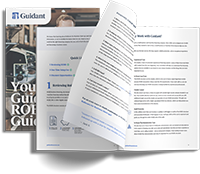- Personal care. This billion-dollar sector includes makeup, beauty, and anti-aging products and services.
- Healthy eating, nutrition, and weight loss. Within these sectors are personal trainers, nutritionists, nutritional therapists, wellness coaches and teachers, and personal chefs.
- Wellness tourism. This differs from traditional tourism in that health and well-being is emphasized. Wellness tourism allows for exploration of well-centric hotels, specialty restaurants, and even airport spas and vehicle transportation that use clean fuels.
- Fitness. Physical workouts and mental health for the body and mind.
The wellness industry continues to boom even amid the COVID-19 pandemic. As people adjust to remote work and staying at home, the wellness industry is working to accommodate the growing at-home market. Offerings in high demand include at-home exercise equipment like stationary bikes, yoga mats, and dumbbell weights, guided meditations via apps, online class gym memberships, and meal prep and planning kit delivery services.
Starting a wellness business means getting behind the health and wellness movement to make a difference in the lives of others. Before you start a wellness business, however, you must address the following steps prior to startup launch.
- Determine if your business idea is viable
- Draft a business plan
- Choose a name
- Incorporate the wellness business
- Open a business bank account
- Obtain required licenses or permits
- Define your brand’s online presence
Determine If Your Wellness Business Idea is Viable
Starting a wellness business may feel like a great idea if you’re passionate about health and wellness. However, before you begin you need to make sure you’re able to meet certain wellness requirements — for yourself and the business.
Some key sectors in the wellness industry may require pre-existing medical and/or fitness credentials. For example, let’s say you want to start a yoga studio. Typically, you will need to look into yoga certification programs. There are a typically a set number of required hours, generally between 200-300, that must be fulfilled before you may become a certified yogi. This kind of credibility matters. Customers will feel much more comfortable taking lessons from a yogi that understands practicing yoga inside and out.
Aside from establishing your wellness qualifications, you should also be able to determine if your business idea is viable. Ask yourself questions about what makes your offerings unique. Make sure you understand that there is a proven need for your services. You should be able to determine how your wellness startup will better the lives of customers as well as make their lives easier.
Write a Wellness Business Plan
After you establish credibility in your field and understand that your business idea is viable, it’s time to draft a business plan. A well-written business plan will allow you to set goals and establish timelines for reaching these business goals. It will also allow you to attract investors that may be interested in investing in your company.
Get money to start your wellness business today.
Keep in mind, however, that investors like to review business plans that are detailed and thoughtful. At a minimum, your business plan should include a business description, insight into its concept, and information on how the company plans to make money (if it is not already generating revenue). Additional key areas to highlight include a market analysis on your target audience, industry analysis on competitors, and financial projections that illustrate your startup’s cash flow and projected profit and loss. Over time, you may return to your business plan and edit it to include more details particularly as it relates to goals you were able to reach with the business.
Choose Your Wellness Business’s Name
Think of business names like Peloton, Fitbit, and Barre Method. These names are highly unique and have an instant association with a wellness business.
Naming your wellness business means you’ll need to pick out a unique business name. This name will identify your business to the world and allow consumers to establish name recognition with the startup.
It is also advised that you trademark your unique business name — and any other unique marks associated with the business including logos, designs, and taglines — to protect the mark from infringement. Before filing a trademark application, conduct a name search. This will allow you to see if the name has already been trademarked or is pending trademark application approval. If the name is free, then you may go ahead and file an application to register the mark at the federal level.
Incorporate Your Wellness Small Business
Most startups start off with the default entity formation known as a sole proprietorship. This entity allows the owner to exercise complete control over the business. However, a sole proprietorship does not provide limited liability to the company. Without this added layer of protection, the owner is responsible for everything that happens to the business — good and bad alike.
Incorporating a wellness business under an entity formation, like a limited liability company (LLC) or corporation, does provide the owner of the business with limited liability protection. This type of protection creates a separation between the personal assets that belong to a business owner, including houses and cars. In the event of an unforeseen circumstance, like business debt or a lawsuit, limited liability ensures that the owner’s personal belongings cannot be seized or impacted.
What else is there to gain from incorporation? Aside from liability protection, incorporating as a business formation allows consumers to establish trust in the business and feel comfortable about purchasing their offerings. There are also tax benefits available with certain formations, like LLCs. If you are unsure of the business entity to incorporate as, consult a legal professional or accountant for additional advice.
Tip: If you want to use your 401(k) to start your wellness business debt-free and cash-rich, you’ll need to form a C-corp. Learn more about 401(k) small business financing here.
Open a Business Bank Account
As you begin to wrap up the final loose ends before launching your wellness business, it’s critical that you are able to open up a business bank account. This must be separate from your personal bank account. Otherwise, you may struggle to keep personal and professional finances separate.
After incorporating or forming an LLC, the IRS will assign your business an employer identification number (EIN). This tax ID is nine digits long and legally identifies your small business as it pays federal and payroll taxes.
Most banks require business owners to file for an EIN before opening a business bank account. In some cases, a certified copy of the EIN may be required for the bank to review prior to opening this account. What else can this tax ID do for your business? It may be used to hire employees (which your wellness business will likely be interested in exploring!), build business credit, and establish a pension or retirement plan.
Tip: Learn everything you need to know about Employer Identification Numbers (EINs) with our EIN series.
Obtain Required Licenses and/or Permits
Depending on the city and state you are operating your wellness business out of, you will be required to have certain business licenses and permits.
Some of these may include standard business licenses, including a business operation license, that allow you to conduct business legally in a specific city, county, and state.
Additionally, you may also look into other licenses. Zoning and building permits will be critical for in-person gym and exercise studio spaces to obtain post-pandemic. If you decide to open a spa, you will need the proper spa and massage permits as well as a general seller’s permit for these services. Even music licensing is critical to look into, depending on the type of wellness sector you decide to go into. After all, you don’t want to work out or spend the day being pampered in complete silence!
Each state will vary on its guidelines for the proper business licenses required by wellness businesses. Check in with your local Secretary of State to see which licenses and permits your business is expected to obtain before it may operate to the public.
Define Your Wellness Brand’s Online Presence
Having an online presence became paramount for small business success in 2021. The COVID-19 pandemic has made it difficult to work out in a public space or visit wellness retreat centers. However, the good news is that many wellness businesses were able to successfully pivot their offerings online. Now, customers had the chance to enroll in an online class, exercise with an at-home instructor, and follow advice from wellness bloggers on the best ways to live and eat healthy.
If you don’t already have an online presence established for your business, now is the time to start! Create a professional website (or seek out the help of a designer if you are unsure how to get started) and obtain a relevant domain name. Sign up for social media handles at Facebook, Twitter, and Instagram and create content for each platform. Setting up this kind of online presence will allow you to optimize your website for SEO purposes, help customers find you online, and give your wellness business the chance to engage with its curious and eager customer base as they begin their health and wellness journey.
Deborah Sweeney is the CEO of MyCorporation.com. MyCorporation is a leader in online legal filing services for entrepreneurs and businesses, providing start-up bundles that include corporation and LLC formation, registered agent, DBA, and trademark & copyright filing services. MyCorporation does all the work, making the business formation and maintenance quick and painless, so business owners can focus on what they do best. Follow her on Twitter @deborahsweeney and @mycorporation.

















